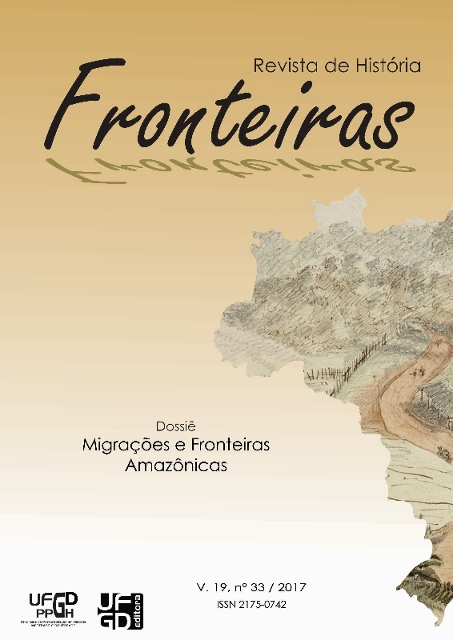Border indigenous peoples of Venezuela: aspects of security and regional integral development
DOI:
https://doi.org/10.30612/frh.v19i33.6765Abstract
This article aims to analyze the risk factors and strength of indigenous border communities in Venezuela, in relation to the vulnerability of those areas and their impact on National Security, this study, concluded as research in 2016, is addressed taking into account ethnic diversity, multiculturalism and citizen coexistence horizontally, where re-knowledge of the cultures and existence of the “other” plays a significant role in living areas, especially when talking about “development” and its subsequent social derivations. In the XX and XXI centuries, the situation of indigenous peoples residing in border areas of Venezuela (Colombia, Brazil, Guyana) in the face of factors such as coexistence with the national and external armed forces and other non-indigenous sectors Strength that it has its presence in the population of the border and the Integral Development of the Nation. Methodologically, a transdisciplinary approach is made, since it links the cultural, social and military, based on a holistic perspective, and the approach to the current legislations.Downloads
Download data is not yet available.
Downloads
Published
2017-08-21
How to Cite
Muñoz, J. G. (2017). Border indigenous peoples of Venezuela: aspects of security and regional integral development. Fronteiras, 19(33), 70–88. https://doi.org/10.30612/frh.v19i33.6765
Issue
Section
DOSSIÊ 11: MIGRAÇÕES E FRONTEIRAS AMAZÔNICAS
License
Autores que publicam nesta revista concordam com os seguintes termos:
- Autoras e autores mantém os direitos autorais e concedem à revista o direito de primeira publicação, com o trabalho simultaneamente licenciado sob a Creative Commons Atribuição-NãoComercial-CompartilhaIgual 3.0 Brasil, permitindo o compartilhamento do trabalho com reconhecimento da autoria do trabalho e publicação inicial nesta revista.
- Autoras e autores têm autorização para assumir contratos adicionais separadamente, para distribuição não-exclusiva da versão do trabalho publicada nesta revista (ex.: publicar em repositório institucional ou como capítulo de livro), com reconhecimento de autoria e publicação inicial nesta revista.
- Autoras e autores têm permissão e são estimulados a publicar e distribuir seu trabalho online, como em repositórios institucionais ou em páginas pessoais, a qualquer ponto antes ou durante o processo editorial, já que isso pode gerar alterações produtivas, bem como aumentar o impacto e a citação do trabalho publicado (Veja O Efeito do Acesso Livre).


